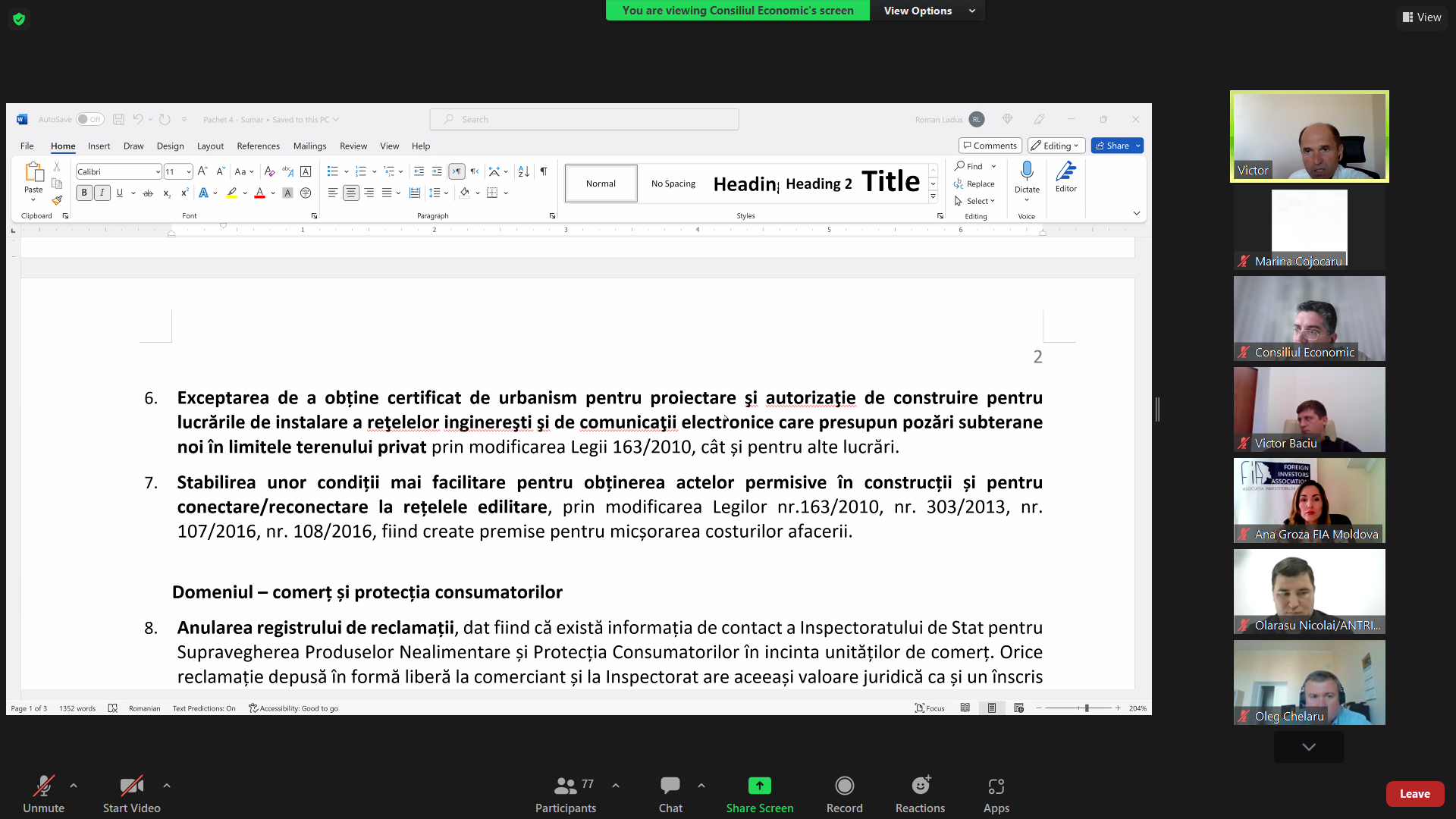ECONOMIC COUNCIL TO THE PRIME MINISTER OF THE RM

Business deregulation packages 4 and 5 provide for an improvement to the business community by eliminating less justified or necessary requirements.
Thus, among other things, the documents provide for the removal from the Health Regulation on the health surveillance of persons exposed to occupational risk factors, of the medical examination on hiring and periodic medical examination for employees in the ICT sector and other employees who use optical devices, monitor screens and displays of computer technology for more than 50% of their shift. It is also proposed to remove “adaptation” medical checks from the list of mandatory medical checks. This means that employees who have passed the 3-month probationary period after being hired will no longer have to undergo this repeated check-up. This is because in the first 3 months after employment nothing changes in the person’s health, and such checks involve costs and time.
The two drafts also provide for the recognition in the Republic of Moldova of commodity exchanges authorised in the Member States of the European Union, if they prove that in their country of origin they meet the minimum requirements laid down by Moldovan law. It is also proposed to modernise the concept of “commodity exchange” to bring it into line with current commodity exchange models. At the same time, it is proposed that public authorities should no longer procure only on the basis of “lowest price”. It is also proposed to allow public procurement through commodity exchanges for the purchase of goods only in cases where the legal requirements to carry out procurement on the basis of negotiations without prior publication of a contract notice are met. It is also proposed that tourist and agritourism guesthouses with a capacity of more than 3 rooms qualify as tourist accommodation. At the moment the rules state that these structures must have between 3 and 20 rooms.
Another proposal is to abolish the complaints register. This is because the contact information of the State Inspectorate for the Supervision of Non-Food Products and Consumer Protection is on the premises of the establishments. Any complaint submitted in free form to the trader and the Inspectorate has the same legal value as an entry in the Complaints Register. Procurement, registration with the local public authority and maintenance of the Register entails undue costs and administrative burden. A further provision concerns the granting of an exception for construction works to be authorised in rural localities in the absence of urban development plans for buildings up to 3 storeys high which will be individual houses or in which entrepreneurial activity will be carried out which will not have a significant impact on the environment and health of the population.
This is because currently the law does not allow building permission without urban development plans, but these are expensive and not approved in a large number of villages and municipalities, which leads to substantial barriers to investment in construction and the opening of new businesses in rural areas. Deregulation packages 4 and 5 are being developed by the Ministry of Economic Development and Digitisation with the support of the Economic Council to the Prime Minister of the Republic of Moldova and expert assistance from United Nations Development Programme projects.
The Secretariat of the Economic Council to the Prime Minister is supported by the European Bank for Reconstruction and Development, funded by the UK Government’s Good Governance Fund, and the International Finance Corporation’s Investment Climate Reform Project funded by the Government of Sweden’s International Development Agency.

The Secretariat of the Economic Council to the Prime Minister is supported by the European Bank for Reconstruction and Development, funded by the UK Government’s Good Governance Fund.
Stay ahead in a rapidly world. Subscribe to Prysm Insights,our monthly look at the critical issues facing global business.










